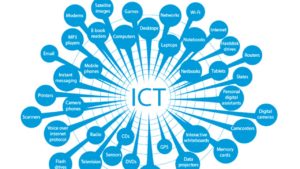By Olusegun Oruame
In its first ever to be published Global ICT Regulatory Outlook 2017, the International Telecommunication Union (ITU) affirmed that the days of “obligation-based regulation and a stovepipe ICT marketplace” are gone. That era, approximately tagged: ‘Generation 1’ no longer exists. Regulation is at Generation 4 and even some countries are already at Generation 5. Yes! There is a seismic shift that forces regulation and regulators to be ‘open, collaborative, flexible and consensus-based.


Executive Vice Chairman of the NCC, Professor Umar Danbatta
The decades when regulators licensed access and ruled supreme over operators can no longer stand. The dynamics of technology, trends in convergence and increasing weighty, sophisticated operations of networks make imperial regulation anachronistic and impracticable. What rules now is smart, inclusive and forward-looking ICT regulation. As the ITU Secretary-General, Houlin Zhao puts it, regulators would do well to adopt the new: “useful guidance in reviewing and upgrading regulatory frameworks for the ICT sector as a basis to widening the digital economy.”


Convergence, new regulatory and technology challenges
Licensing access is cool, so too is measuring and ensuring quality of service (QoS), but more disruptive services are now within the grasps of consumers outside of the direct purview of regulators and riding on the back of legacy services of licensed operators. In Nigeria, as in many telecom jurisdictions, both operators and regulators have opted to simply watch as the market unfolds; even as all parties are faced with the issues of best practices, anti-trust and optimization of a unified approach to regulating a converged industry.
In the Generation 4 era of regulation, issues of wider access and cheaper cost of service are becoming secondary to more critical emerging issues such as how to sustain a level playing field for all players; how to optimize Next Generation Networks (NGNs) to bring best of technology values to increasingly sophisticated consumers; and to ensure adherence to corporate codes on best practices; among others.
The contentions among stakeholders today are both regulatory and technology – they all collapsed to one central theme of how to meet the challenges of technology and regulatory convergence. From a technology perspective, it is a simple matter of deploying new technologies to expand service tremendously and cheaply by erasing old business models. The potential is great and the benefits inherently enormous.
But from regulatory perspectives, there are risks. Disruptive technologies will bring welcome changes but they could disrupt the market so much so that governments, regulators, and existing operators could lose grip of the market and the consequences will be a lawless market space without effective or even, total lack of control. Control in the sense of guided direction and absolutely necessary enforcement.
The notion of convergence, as some advocates will push it, raises the ageless philosophic debate over whether laws or absence of laws are necessary to advance real development in any society?
Laws and enforcements are germane to growth. The last decade defined access. The unfolding decade will define the multiplicity of possibilities and challenges that have happened to access. Right Regulation will become imperative to sustain order and real growth. The regulators at the Nigerian Communications Commission (NCC) can take a cue from the Global ICT Regulatory Outlook 2017; what works now is: ‘smart, inclusive and forward-looking ICT regulation.’































